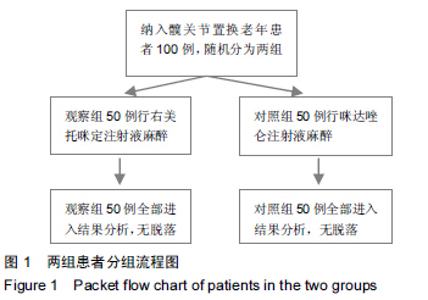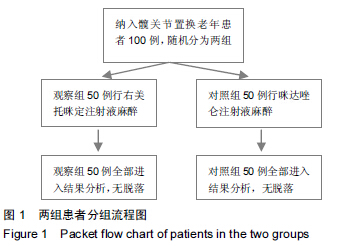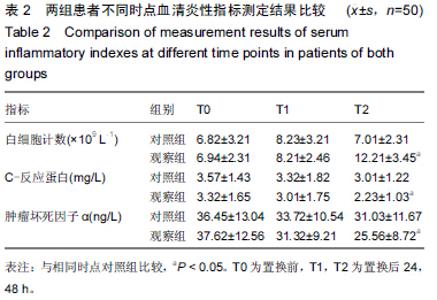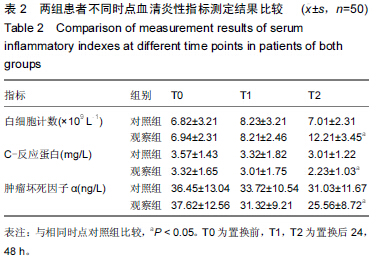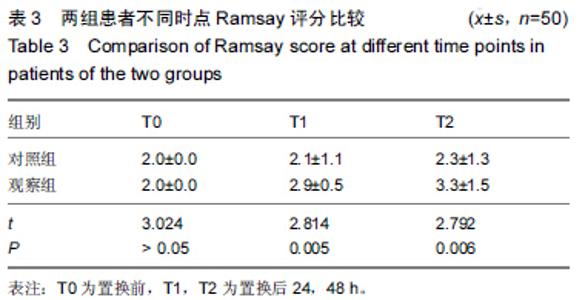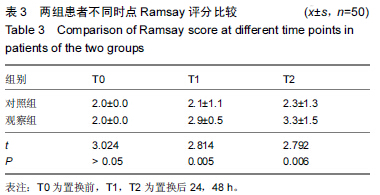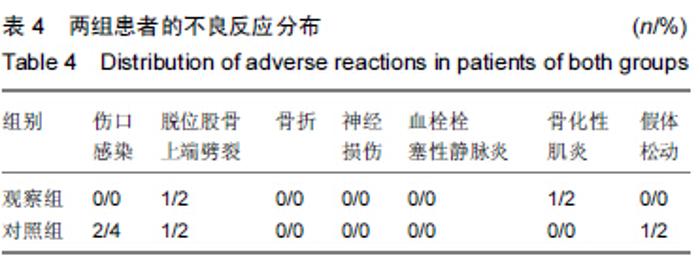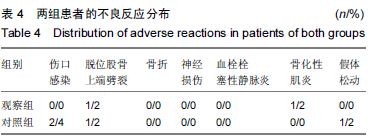[2] 张强,付海涛,范家强,等.混合髋关节置换在老年关节置换中的应用[J].中国老年学杂志,2014,34(9):2424-2426.
[3] 凡福成,桂斌捷.髋关节置换后氨甲环酸关节腔注射及间断夹管:出血量的变化[J].中国组织工程研究,2014,18(40):6397-6402.
[4] 陈妮妮,王海梅,韩艳,等.高龄髋关节置换术后患者预防跌倒的护理对策[C].//第九届西部骨科论坛论文集,2013:1049-1049.
[5] 苏纪权,曲天义,蒋兴松,等.髋关节置换术后早期感染的诊断和治疗[C].//第三届全国中西医结合骨科微创学术交流会论文集, 2013: 15-17.
[6] 赵小泉,夏贤生,蒙剑德,等.老年股骨颈骨折髋关节置换的方式选择及疗效分析[J].医学综述,2014,20(14):2652-2654.
[7] 李民,张利萍,吴新民,等.右美托咪啶在临床麻醉中应用的研究进展[J].中国临床药理学杂志,2007,23(6):466-470.
[8] 吴新民,许幸,王俊科,等.静脉注射右美托咪啶辅助全身麻醉的有效性和安全性[J].中华麻醉学杂志,2007,27(9):773-776.
[9] Parvizi J, Miller AG, Gandhi K. Multimodal pain management af tertotal joint arthmplasty. J Bone Joint Surg Am. 2011;93 (11):1075-1084.
[10] 柏平,闫东,税春玲,等.术中使用右美托咪啶对老年患者术后认知功能的影响[J].重庆医学,2013,42(18):2107-2109.
[11] 华震,于文刚,宋建防,等.右美托咪啶复合舒芬太尼、丙泊酚靶控输注对老年患者双腔气管插管时血流动力学的影响[J].山东医药, 2014,54(23):42-44.
[12] 唐春林,谭平,吴文峰,等.右美托咪啶与芬太尼对七氟醚麻醉术后躁动的预防作用研究[J].重庆医学,2013,42(17):2007-2009.
[13] Barrientos RM, Higgins EA, Biedenkapp JC, et al. Peripheral infeetion an d aging interac t to impair hippoeampal memory consolidation. Neurobiol Aging. 2006;27:723-732.
[14] Salminen A, Ojala J, Kanppinen A, et al. Inflammation in Alzhei- mer$disease:amyloid-beta oligomers trigger innate immunity defence via pattem recognition receptors. Prog Neurobiol. 2009;87:181-19.
[15] 张晓青,徐雪.右美托咪啶器官保护作用的研究进展[J].基础医学与临床,2012,32(7):844-845.
[16] 马长华,袁林辉,李昌,等.盐酸右美托咪啶对OPCABG高龄病人术后炎症反应及氧化应激反应的影响[J].中国老年学杂志,2014, 34(21):6005-6007.
[17] 邓海洪,马松梅,肖晓山,等.坐骨神经分支选择性损伤模型大鼠右美托咪啶鞘内注射的镇痛作用[J].中国组织工程研究,2014, 18(27): 4355-4361.
[18] 周强,陈君,梁禹,等.右美托咪啶在烟雾病颞肌贴敷手术麻醉中的应用[J].山东医药,2013,53(20):69-71.
[19] 章淬,牛永胜,王玲燕,等.右美托咪啶对主动脉夹层围手术期炎性反应的影响[J].中华胸心血管外科杂志,2014,30(4):231-233.
[20] Hofer S, Steppan J, Waqner T, et al. Central sympatholy- tics prolong survival in experimental sepsis. Crit Care. 2009; 13(1): R11.
[21] 及宁,孙振辉,江泽华,等.髋关节置换和内固定修复老年股骨颈骨折再手术及并发症的系统分析[J].中国组织工程研究,2014, 18(31): 5044-5049.
[22] 张克云,余黎明,张绪华,等.高龄老人髋关节置换的高危因素:128例特征[J].中国组织工程研究,2014,18(9):1331-1336.
[23] 华寒冰,毕郑刚.高龄患者半髋关节置换后骨折风险的评估方法[J].中国组织工程研究,2014,18(31):5062-5067.
[24] Maldonado JR, Wyng A, vall der Starre PJ, et al. Dexmedetomidine and the reduction of postoperative delirium after cardiac surgery. Psyehosomaties. 2009;50:206-217.
[25] 秦洪猛.舒芬太尼联合右美托咪啶在22例骨科术后患者自控静脉镇痛中的效果观察[J].重庆医学,2013,42(17):2009-2011.
[26] Lang Y, Wang TL,Wu XM,et al. Application of sedation with a low dose of dexmedetomidine during intrathecal an esthesia in elderly patients. China Med J. 2011;91(28):1953-1956.
[27] 姜燕,王世端,黄辉,等.不同剂量右美托咪啶对异丙酚抑制老年患者Supreme喉罩置入反应EC50的影响[J].中华麻醉学杂志, 2012,32(7):805-807.
[28] Emsley HC,Tymel PJ. Inflammation and infection in clinical stroke. J Cereb Blood How Metab. 2002;22(12):1399-1419.
[29] 丁晶晶,徐金美,陈秋萍,等.国产右美托咪啶用于高血压患者全麻气管拔管临床研究[J].南通大学学报(医学版),2010,30(4):263-265.
[30] 方志成,周昌娥.右美托咪定抑制神经源性肺水肿交感活性亢进的临床研究[J].临床肺科杂志,2014,19(3):423-425.
[31] 任杰,兰萍.小剂量右美托咪定在全身麻醉苏醒拔管期的疗效及安全性[J].中国医药科学,2014,4(18):82-85.
[32] 潘云松,胡毅平.诱导前用右美托咪啶对老年高血压患者全麻时血流动力学的影响[J].实用医学杂志,2012,28(11):1873-1875.
[33] 柏平,闫东,税春玲,等.术中使用右美托咪啶对老年患者术后认知功能的影响[J].重庆医学,2013,42(18):2107-2109.
[34] 何卓文,田丰,张坤全,等.右美托咪啶联合芬太尼用于肺功能减退老年患者无痛纤维支气管镜检[J].重庆医学,2013,42(17): 1973-1975.
[35] 唐春林,谭平,吴文峰,等.右美托咪啶与芬太尼对七氟醚麻醉术后躁动的预防作用研究[J].重庆医学,2013,42(17):2007-2009.
[36] Cui GJ,Holmin S,Matblesen T,et al. Possible role of inflammatory me,atom in tactile hypemenditivity in rat model of mononeuropathy.Pain. 2002;88(11):239.
[37] 崔国庆,滕金亮,王丽,等.右美托咪啶对瓣膜置换术患者血中炎症介质的影响[J].重庆医学,2013,42(22):2588-2590.
[38] 罗青妍,黄绍强,周守静,等.右美托咪啶混合舒芬太尼用于剖宫产术后病人自控静脉镇痛的效果[J].中华麻醉学杂志,2011,31(3): 274-277.
[39] 张承华,麻伟青,杨云丽,等.右美托咪啶复合麻醉对高龄髋关节置换术患者术后谵妄的影响[J].中华麻醉学杂志,2012,32(8):936-938.
[40] 薛超.右美托咪啶对ICU机械通气病人的疗效[D].青岛大学,2014.
[41] 陆姚,余骏马,董春山,等.右美托咪啶对老年骨科手术患者全麻恢复期质量的影响[J].中华麻醉学杂志,2012,32(6):742-744.
